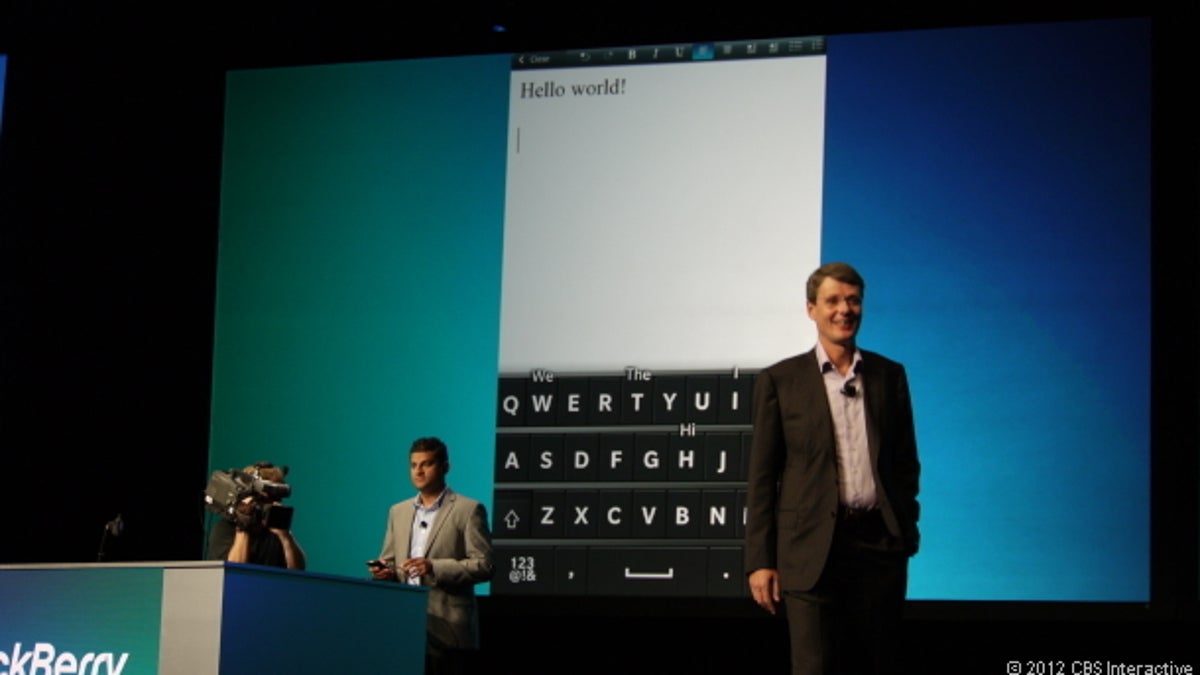RIM CEO: Health care, smart-grid markets interested in BB10
The struggling company is also looking into renting its BlackBerry network to businesses looking for their own secure connection, its CEO says in a CNET interview.

If you take CEO Thorsten Heins' word for it, the next Research in Motion operating system -- BlackBerry 10 -- isn't intended just for mobile devices, and is already drawing interest from other industries.
In an interview with CNET, Heins said businesses in the health care and smart-grid fields have already expressed interest in using the operating system. The company likes to tout that QNX, the software BlackBerry 10 is based on, powers a number of different systems, including cars.
Eventually, BlackBerry 10 will power devices and equipment in multiple industries, Heins said. For instance, he said, the auto industry is also keen on moving from QNX to BlackBerry 10.
RIM is also considering making better use of its proprietary and secure BlackBerry network, something Heins said sets it apart from other handset manufacturers. The company is looking into provide network services to businesses that want a secure connection and looking for security elements such as authentication.
The network, which is protected by strategically placed network operating centers around the world, is currently only used to deliver wireless carrier traffic from its BlackBerrys around the world.
The options are part of the steps Heins is taking to turn RIM's fortunes around. The company continues to lose market share, and has a non-presence in its home market of North America, but hopes to reinvigorate its brand through its BlackBerry 10 smartphones.
The company has largely bet its future on the success of these devices and the platform. As such, the company is proceeding slowly in these other areas as it focuses its attention on BlackBerry 10, with phones expected to launch early next year.

